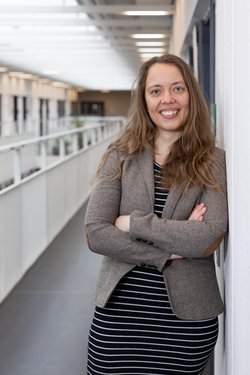Johanne Nedergaard

People with anendophasia do not have an inner voice
Cognitive science
How do we use our inner voice to improve performance and concentration? And is it really true that some people do not have an inner voice? As a PhD student, Johanne Nedergaard set out to answer these questions.
Not all researchers can claim to have established a new field of research. But Johanne Nedergaard did as a PhD student of cognitive science – a field that draws on i.a. psychology, linguistics and philosophy. During a research stay in Wisconsin, Johanne Nedergaard and one of her American colleagues were the first to study the field of anendophasia, which is the study of the inner voice.
“We considered it an extension of aphantasia, which is the inability to create mental imagery. We were inspired by this field to try to identify ways of determining whether people do in fact have an inner eye or voice, but just do not notice it,” Johanne Nedergaard says and adds:
“We often associate the inner voice with verbal memory, so we tested that form of memory by giving the test subjects a list of words to remember in the right order. It turned out that people with anendophasia did not do as well as the other test subjects. We also showed them images of various objects and asked them whether or not they rhymed, and here too those with anendophasia did not perform as well as the others.”
In her PhD project, Johanne Nedergaard also studied other aspects of the nature and function of the inner voice. Among other things, she studied the inner voice and its role in physical endurance from a cognitive psychological perspective and learned that if you prevent people from talking to themselves it will affect their performance negatively. And she had more experiments planned, but then the pandemic struck in March 2020.
“Instead I had to learn how to create online experiments. And this paid off, as it enabled me to conduct anendophasia experiments online. And because anendophasia is pretty rare – affecting only around 5-10 % of the population – it is one of those things that would be difficult to study without using the internet and social media for recruitment of test subjects,” Johanne Nedergaard says.
As a postdoc at the University of Copenhagen, she now researches aphasia – language impairment following e.g. a blood clot in the brain or brain haemorrhage – in Greenland.